QFH Multiparts Productive Landcare Demonstration Project
This three-year project will focus on regenerating infertile land and fixing degradation issues such as erosion and salinity.
Thanks to the generous sponsorship of local Katanning business QFH Multiparts, the Productive Landcare Demonstration is a golden opportunity to showcase how protecting natural resources can also give an agricultural production boost.
Four neighbouring young farmers are working closely together to plan and implement work across their property boundaries, sharing ideas and learning together.

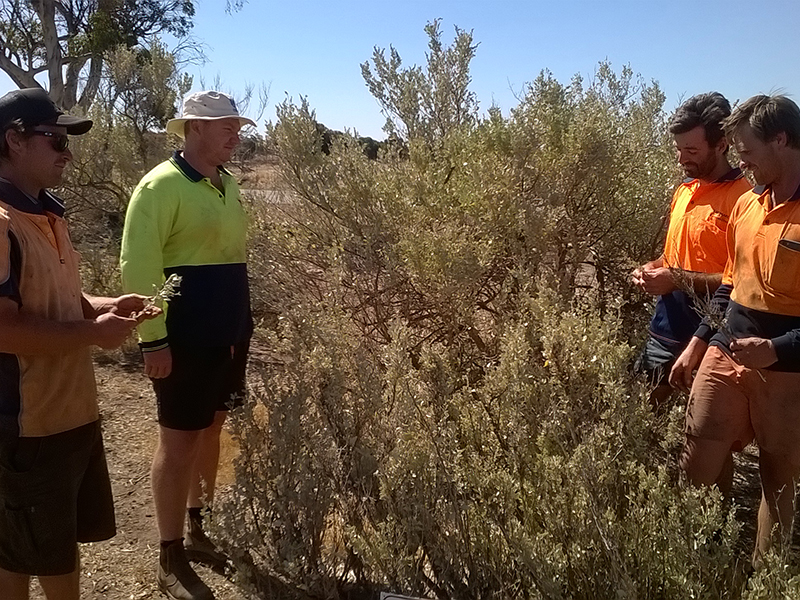
Hamish, Ethan, Tim and Stephen inspecting established saltbush.
On-Ground Works
A healthy productive farm needs healthy productive soil, water and vegetation. The four participant farmers are busy implementing on-farm works to protect biodiversity, guard against erosion and control groundwater.
Three of the four farms have completed Water Audits through the WA Department of Water’s Farm Watering WA program, with two going on to implement actions to improve their capture and use of rainfall.
To date, the farmers have planted 6500 trees, 17,800 saltbush and erected 5.5km of fencing.
This coming season, a further 9480 trees, 20,040 saltbush and 5km of fencing will be installed.
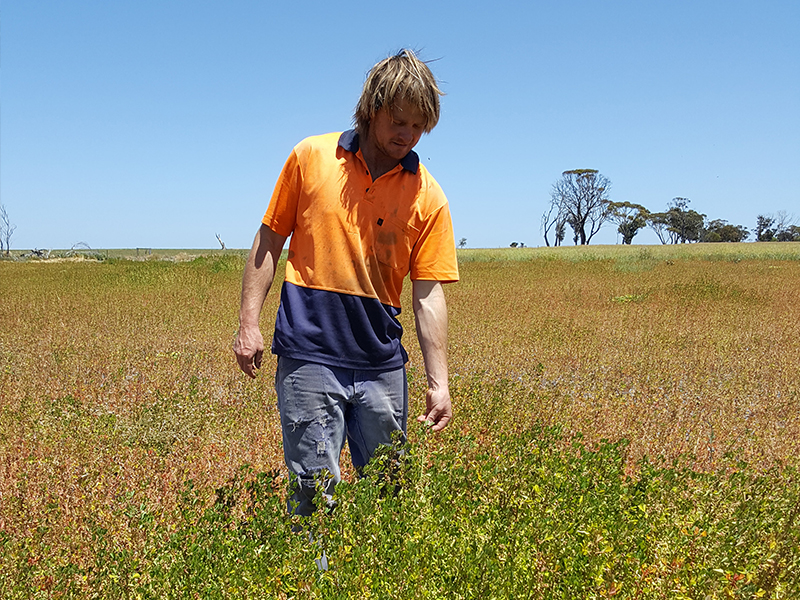
Tim Harris with his messina pasture, established 2017.
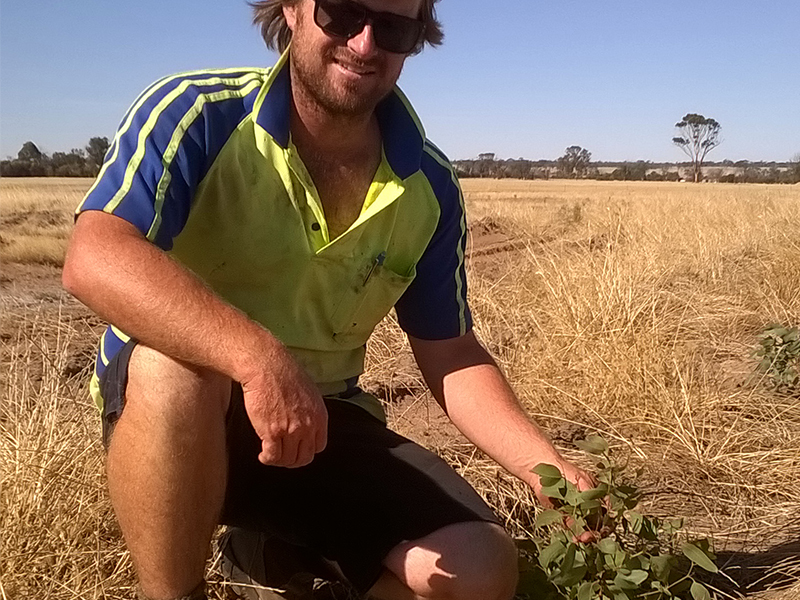
Hamish Thompson with native revegetation seedlings planted 2018.
Pasture Establishment Trial
Over winter 2019, the QFH Multiparts Productive Landcare Demonstration Project is undertaking a trial testing the establishment of a range of pasture species on salt affected land.
Plants can and will grow on salt affected land – sequestering carbon into the soil, protecting against erosion and providing a valuable food source for livestock – buuuut it’s a little tricker than on fresh soil. The amount of salt present, risk of water logging, pH constraints and degraded organic content can make choosing the most suitable species – and getting them to grow – more challenging.
Three sites ranging from 8 – 18ha each have been selected for the trial, and soil samples taken. A portion of each site was scarified prior to seeding. With input from pasture-guru Neil Ballard, the following species have been selected and allocated to each site:
- Italian Ryegrass
- Scimitar Medic
- Messina
- Biserrula
- Rose Clover
- Silverosa Lucerne
- Eliza Seradella
Sowing took place in May 2019. The trial was assessed later in the season using visual assessment, food on offer (FOO) and greenness. A field walk was held in October 2019 to view the trial sites and share results.
The 2 page Trial Summary and results is available here.
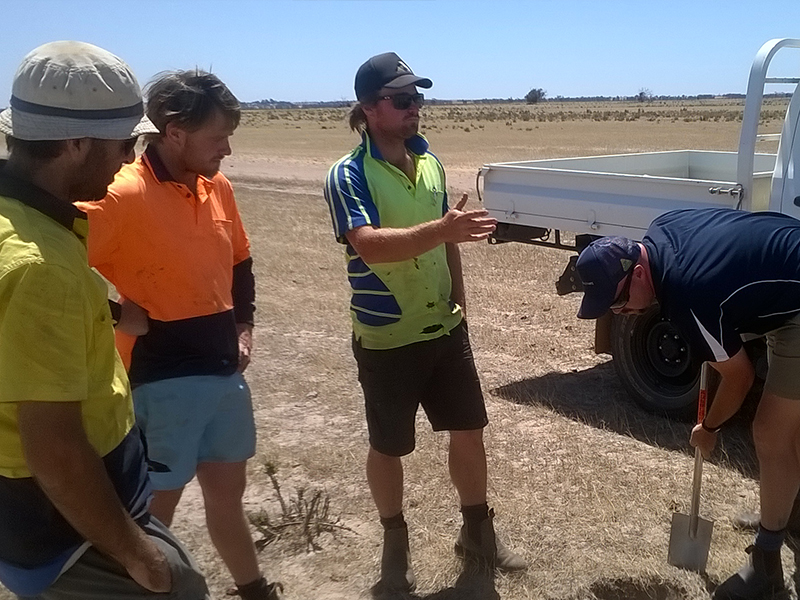
Investigating sub-surface soil moisture at the Thompson trial site.
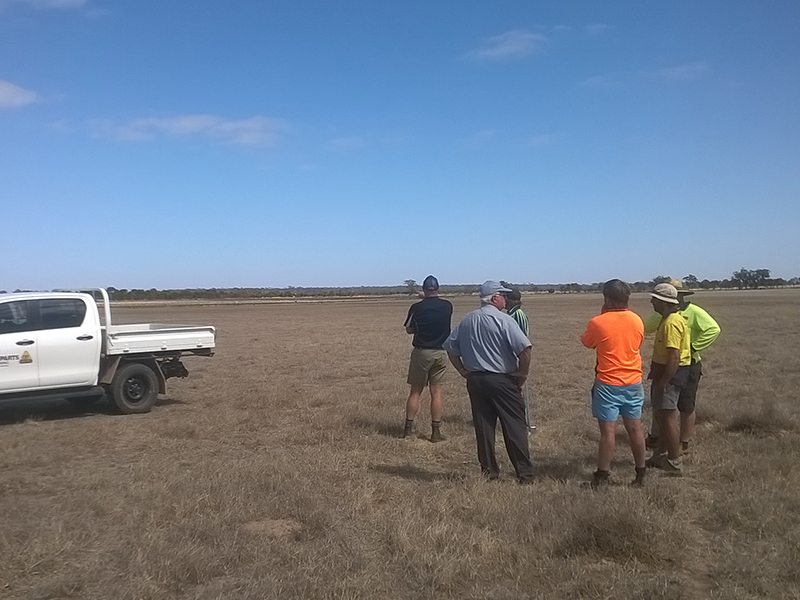
Inspecting the Harris trial site, sloping down to the flats.
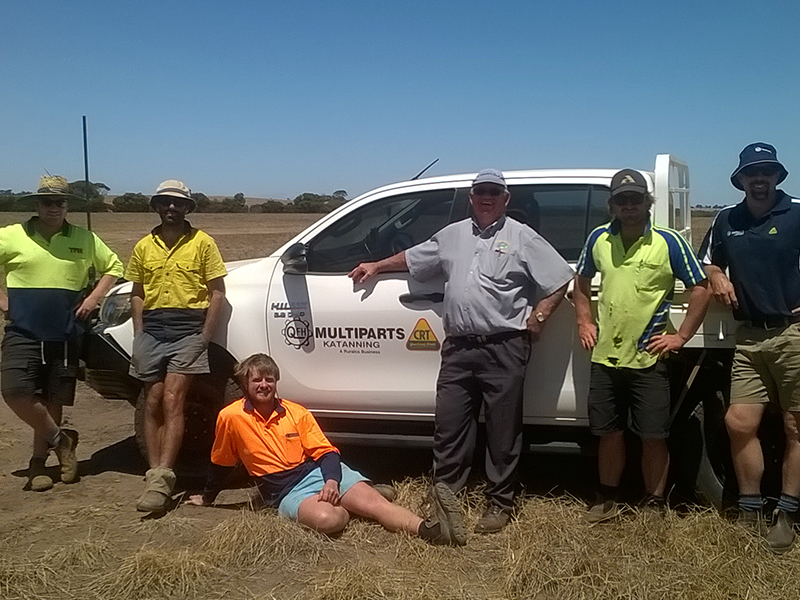
Ethan Caldwell, Stephen Barratt, Tim Harris (sitting), Neil Ballard (Global Pasture Consultants), Hamish Thompson, Steve Irvine (QFH Multiparts).
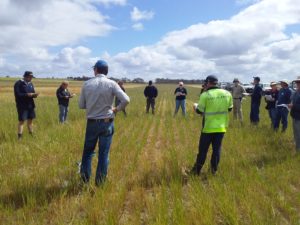
Attendees at the Thompson site.
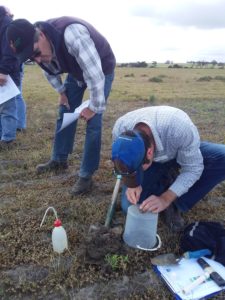
Checking nodulation on the biserulla at Barretts.
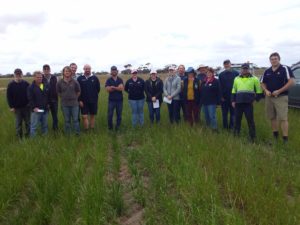
Participants finishing the Field Walk at the Harris site.
